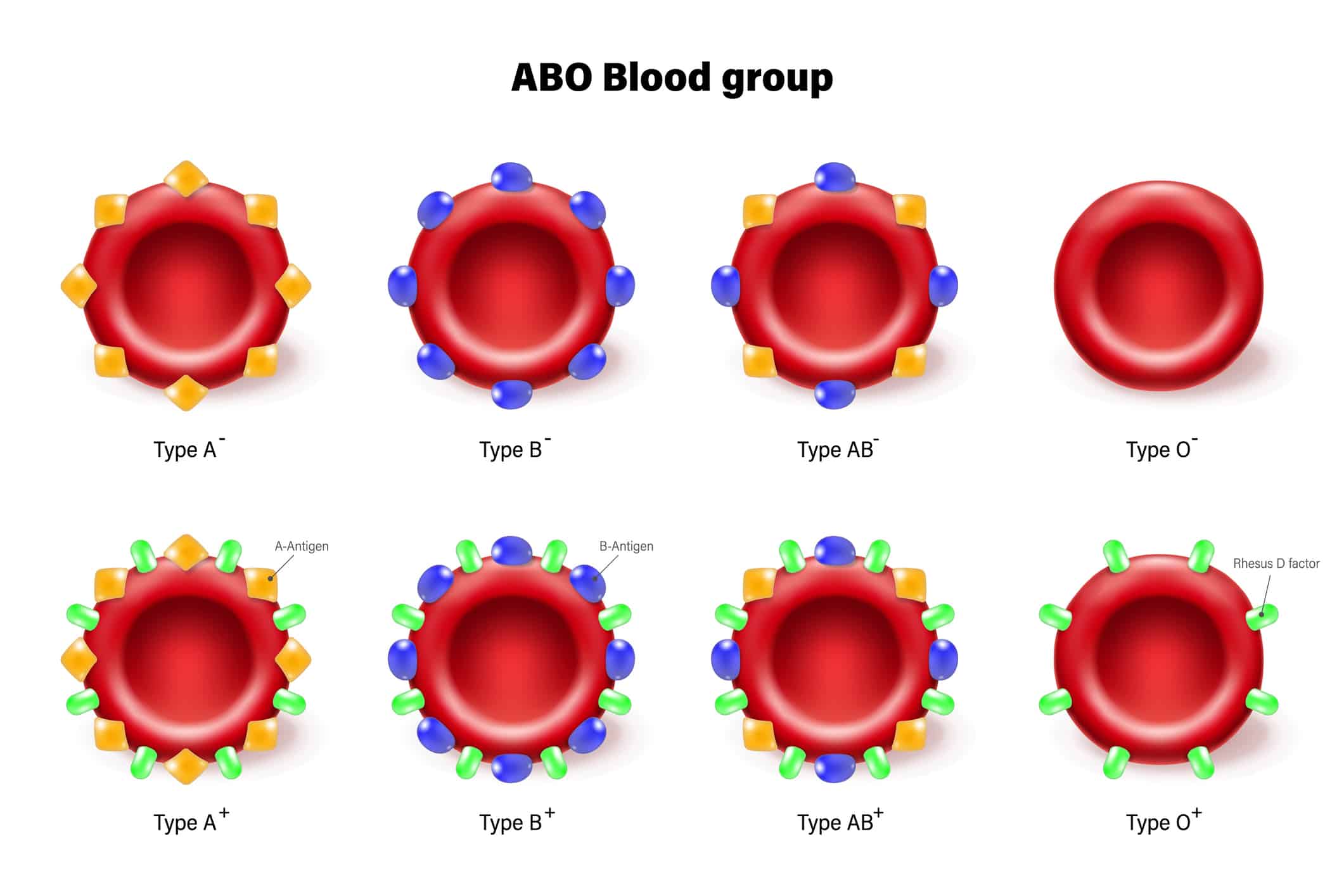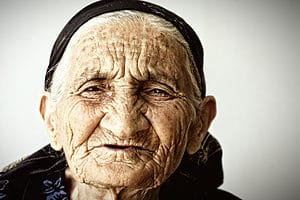If you’ve ever been to the doctor at any point, then you’ve likely learned about your specific blood type and how it could affect you if you’re ever hurt or in an accident. There are various different blood types, and while some are very common, others are exceedingly rare. Having a rare blood type means that it’s harder to get blood when you need it. On top of that, it’s better that you can donate rare blood so others need it when they get hurt. Today, we’ll talk about the rarest blood types, how many people have them around the world, and interesting facts that you’ll want to know.
Overview of Blood Types
We all have a blood type. Some of them are incredibly common, and some very rare. If you’re ever hurt, and you need blood to replenish your supply then you can only get new blood that will be compatible with your type. There are four main base blood types: A, B, AB, and O.
The type of blood you have depends a lot on your red blood cells. The other element is your Rh factor, and that’s what makes your blood type positive or negative.
In addition to the red blood cells, there’s also the antigens that are in the red blood cells. An antigen marks the substance in your body as not belonging or belonging. If your antigens belong with another person, then you have a blood type that you can share with them.
The + and – that you see after the blood types says whether or not your blood has the RhD antigen, which is a protein found on the exterior of the red blood cells. It’s a measurement that’s important when you’re pregnant.
When you incorporate all of these elements together, you get the eight total blood types:
- A+
- A-
- B+
- B-
- AB+
- AB-
- O+
- O-
Know Your Blood Type
If you’re hurt, or you get a blood transfusion, then you need to get compatible blood. If you don’t, and the antigens in your blood aren’t compatible with someone else, then the results can be life-threatening. It’s important to know your own blood type just in case you are in an emergency situation. Your blood type is on your birth certificate, and you can also learn it at the hospital.
When your blood type is an O- then you’re a universal donor. That means if you donate blood, then an individual with any blood type can receive your blood.
When your blood type is an AB+ then you’re a universal recipient. You can get blood from anyone. This is a very good sign if you’re ever hurt.
Compatible Blood Types
It’s important to know your blood type so you know what blood you can receive for the best chance of survival. These are the rules to remember:
- A positive – You can receive blood that’s A negative, A positive, O negative, and O positive.
- A negative – You can receive blood that’s O negative or A negative.
- B positive – You can receive blood that’s B negative, B positive, O negative, and O positive.
- B negative – You can receive blood that’s O negative or B negative.
- AB positive – You can receive all blood types.
- AB negative – You can receive blood that’s A negative, AB negative, O negative, or B negative.
- O positive – You can receive blood that’s O negative or O positive.
- O negative – You can only receive O negative blood.
The most common blood type in the world is O+ because it’s the most frequently occurring blood type for approximately 37% of people. The red blood cells are compatible with red blood cells that are positive, such as B+, A+, O+, and AB+. Over 80% of our population has a positive blood type so they can receive O+ blood.
Rarest Blood Types

It’s important to know your blood type so you can donate to those in need.
©Ground Picture/Shutterstock.com
Let’s talk about the rarest blood types, including what makes them so rare, how many people in the world have the blood type, and other fun facts.
AB Negative Blood
According to Live Science, the rarest blood type in the world is AB-negative. Only .50% of the world population has AB- blood. That’s under 1%. Many people have AB- blood because there’s an absence of the gene that’s responsible for AB blood antigens. If parents have AB- blood, the same trait will be passed down to their kids.
B Negative Blood
The next of the rarest blood types is B- blood, which is only slightly less more common than AB-. At this point, 1% of the world population has B- blood. If you have this blood type, then you can give it to both AB and B patients. If you do have this blood type, then try donating whenever you can, and you’ll be a true hero.
A Negative Blood
Then we have A- blood, which is only shared by 2.5% of the world population. One out of every 13 donors are this blood type. If you donate your blood cells, then your blood can be used to treat a big section of the population.
O Negative Blood
If you have O- blood, then you are part of only 3% of the global population. Though it’s on the list of the rarest blood types, it’s still incredibly important. In fact, O- is the most common blood type that’s used for transfusions when the recipient’s blood type is unknown. That’s one of the reasons why the O- blood type is used most for surgery, emergency, and trauma. You may know the O- blood type as the universal blood type. While you can give it to anyone, if you have O- blood then you can only receive O- blood.
AB Positive Blood
Folks who have the AB+ blood type make up 5% of the population. Congratulations, you’re considered a universal recipient because you can receive red blood cells from anyone. Although it’s not the rarest in the world, it is one of the rarest in the U.S., with 1 out of every 100 people having it. The blood type is spread out among the world, but it is more frequent in Asian Americans.
B Positive Blood
Now, we’re getting into more common territory because about 15% of the world’s population has B+ blood. This B+ blood can be given to both AB positive and B positive patients and B positive patients can receive blood from O positive, O negative, B negative, and B positive donors. This is another type of blood more common in Asian Americans. This type of blood is instrumental in treating patients with rare diseases like thalassaemia and sickle cell disorder.
A Plus Blood
The final of the less common blood types is A+ blood. About 31% of the world population has this blood type. As the name suggests, this is a good blood type to have because it says that your blood contains type-A antigens and the rhesus (Rh) factor. This is the second most common blood type behind O+ blood. Caucasians are more likely to have the A+ blood type, followed by those with Native American ancestry.
Importance of Blood Type

Knowing your blood type is especially important if you’re pregnant because you may have to make specific precautions.
©Ground Picture/Shutterstock.com
There are several reasons why it’s important to know your blood type. Consider these reasons to be the most important:
Be Ready for the Unknown
If you’re in a sudden accident and you are hurt, and there’s no time to get a blood test, then your only chance of survival may be to know your blood type then and there. The same goes for if you’re in a situation where someone else needs blood. Giving them the wrong blood can be life-threatening, so it’s important to be aware of your own body and what’s going on inside.
You’ll Know How Important You Are
If you have a rare blood type, then you can be instrumental in helping others in need. If you have AB- blood or B- blood, then you should donate blood whenever you can because it’s in rare supply. You may not know the patient who receives your blood, but knowing that you’ve likely been instrumental in saving someone’s life can be incredibly fulfilling.
To Have a Healthy Pregnancy
When you know your blood type, you’ll also know your chances of a successful pregnancy. Women with type O blood have an increased chance of conditions like diminished ovarian, which makes it more difficult to conceive. That doesn’t mean that you won’t ever have a baby, but if you know ahead of time, then you can speak to your doctor and make the precautions for the best chance for success.
There’s also the possibility that if the blood type of you and your baby differ, it could lead to Rh factor incompatibility. That happens when the mother has Rh-negative blood, but the child has Rh-positive blood. If that were the case, and the mom’s blood came in contact with the baby’s blood, then it could lead to jaundice for the child. Once you see your obstetrician, they will check your blood so they can make the proper precautions, but it still doesn’t hurt to know your blood type ahead of time.
To Navigate Health Conditions
While it’s not a guarantee, there’s always a chance that you could get certain health conditions depending on the type of blood you have. If you know your blood type and you know the risks, then you can speak to a doctor and get the proper precautions and look into proper courses of action.
There are many health conditions and scenarios to be aware of, including the fact that:
- People with type A blood are slightly more likely to get coronary artery disease, then folks with type O.
- Individuals with type B blood have a 10% higher risk of certain types of artery disease than others, and those with type AB blood have a 23% higher risk.
- People that have type AB blood sometimes have a higher risk of stroke.
- Type A blood is often considered a risk factor for stomach cancer.
On the other hand, there are some positive signs for several of the blood types. For instance, people with type O blood have a lower risk for heart disease, and those with type O blood may have a reduced risk of type 2 diabetes.
Conclusion
That concludes your lesson about the rarest blood types. In addition to knowing about the different types, it’s essential that you know your own type so you can help others and be helped in the case of an emergency. When you get a moment, check your birth certificate or get blood testing, and be ready for the inevitable.
Thank you for reading! Have some feedback for us? Contact the AZ Animals editorial team.








